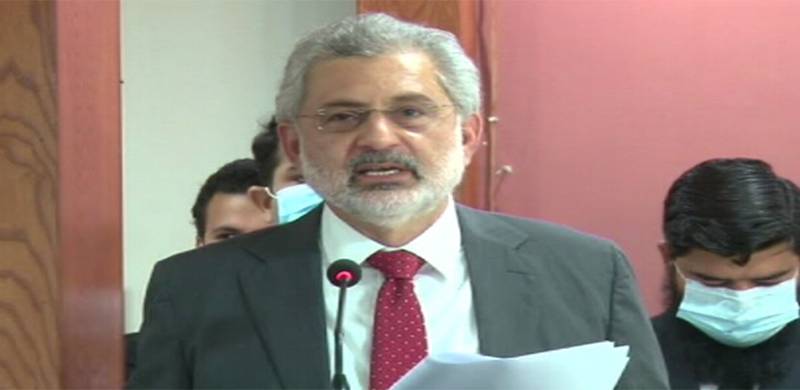
Supreme Court judge Justice Qazi Faez Isa said that it was unforgivable that Pakistan was listed at the 139th position on the world press freedom index in 2018, but had now slipped to the 145th position out of a total of 180 countries.
He expressed these views while addressing the Asma Jehangir Conference, in Lahore, where he talked about numerous issues ranging from democracy to human rights and the role of the judiciary throughout Pakistan’s history.
At the beginning of the speech, Justice Isa said that everyone, including judges, is required to abide by the constitution, adding that he was hopeful about democracy in Pakistan.
He further said that the constitution of Pakistan guarantees human rights and that the rights mostly under attack right now include freedom of the press, women’s rights, and the rights of girls to education.
He remarked that Pakistan was listed at the 139th position on the world press freedom index in 2018, but had now slipped to the 145th position out of a total of 180 countries. This Justice Isa remarked was ‘unforgivable’. He said that Pakistan was one of the first signatories of the Universal Declaration of Human Rights, Article 19 of which states that everyone has a right to freedom of expression.
While quoting Quaid-e-Azam Muhammad Ali Jinnah, Justice Isa said that the founder of that nation had envisioned a democratic state based on Islamic principles of social justice. Democracy, he said, is a right and not something to be begged for.
Talking about the teachings of the Prophet (PBUH) Justice Isa said that the best form of jihad is speaking truth to a tyrannical ruler, as taught by the Prophet (PBUH). He added that the right to information was also an important topic in Islam.
While talking about women’s rights he quoted that Pakistan was ranked 153rd out 156 countries on the gender gap index. He gave the examples of Fatima Jinnah, Hazrat Khadija, and Hazrat Aisha as role models and said that the way these women conducted themselves cannot be replicated in an intolerant society.
While talking about the constitutional history of Pakistan, he explained that martial laws had always been rectified by the judiciary. He concluded his speech by remarking that there was a need for introspection and self-reflection for society to progress.
He expressed these views while addressing the Asma Jehangir Conference, in Lahore, where he talked about numerous issues ranging from democracy to human rights and the role of the judiciary throughout Pakistan’s history.
At the beginning of the speech, Justice Isa said that everyone, including judges, is required to abide by the constitution, adding that he was hopeful about democracy in Pakistan.
He further said that the constitution of Pakistan guarantees human rights and that the rights mostly under attack right now include freedom of the press, women’s rights, and the rights of girls to education.
He remarked that Pakistan was listed at the 139th position on the world press freedom index in 2018, but had now slipped to the 145th position out of a total of 180 countries. This Justice Isa remarked was ‘unforgivable’. He said that Pakistan was one of the first signatories of the Universal Declaration of Human Rights, Article 19 of which states that everyone has a right to freedom of expression.
While quoting Quaid-e-Azam Muhammad Ali Jinnah, Justice Isa said that the founder of that nation had envisioned a democratic state based on Islamic principles of social justice. Democracy, he said, is a right and not something to be begged for.
Talking about the teachings of the Prophet (PBUH) Justice Isa said that the best form of jihad is speaking truth to a tyrannical ruler, as taught by the Prophet (PBUH). He added that the right to information was also an important topic in Islam.
While talking about women’s rights he quoted that Pakistan was ranked 153rd out 156 countries on the gender gap index. He gave the examples of Fatima Jinnah, Hazrat Khadija, and Hazrat Aisha as role models and said that the way these women conducted themselves cannot be replicated in an intolerant society.
While talking about the constitutional history of Pakistan, he explained that martial laws had always been rectified by the judiciary. He concluded his speech by remarking that there was a need for introspection and self-reflection for society to progress.

